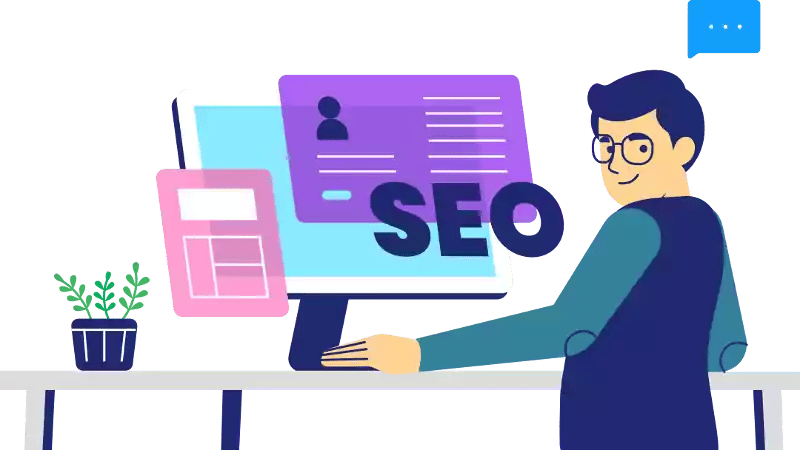Unlock SEO success: Learn how we use HubSpot Content Hub for SEO, boost rankings, increase organic traffic, and optimize our content for success.
12 SEO Myths That Don't Hold Today [Video]
Since the term SEO (for Search Engine Optimization) was coined, many myths have been attached to most discussions of how to implement it effectively. Some of the more common myths are recent additions; some have been around a while, some are alive and kicking, and some are zombies that don't give up the ghost.
Effective SEO takes time and effort and does produce results. Knowing about the myths is good so you can sidestep them, as they can waste your time and money.
 1) SEO is no better than snake oil or voodoo.
1) SEO is no better than snake oil or voodoo.
According to the Search Engine Journal, this myth hangs around because bad practitioners did bad work, leaving clients no other way to explain the lack of results. It's often those bad practitioners who use this myth to explain away their poor results.
SEO done right improves a site to meet current search algorithms while using specific query strings to increase relevant site traffic and, in turn, revenue.
2) You must submit your site to Google to appear in search results.
Simply put, this is nonsense. The search engine can find your site without you submitting it. The bots that crawl the web will find and index the site. You can submit your site using Google Search Console, but you don't have to do so manually to appear in search results.
3) If big, national brands do SEO this way, it must be good.
Don't copy what the big guys do. Find what works for you and be consistent in doing that.
As the Search Engine Journal puts it:
"Unless you’re looking at their [the big guy's] metrics, don’t believe them and even if it is the best thing for them, the chances of that being right for you are slim."
4) You will get a penalty for duplicate content.
There is no such thing, and there has never been such a thing as an explicit duplicate content penalty. However, Google has a duplicate content filter, meaning that if the bots find more than one item of content that is the same, Google will not rank both for the same query.
5) Social media postings get you better rankings.
Well-executed social media marketing gets you in front of more eyeballs. This exposure can yield links and citations. It's the links and citations that can get you better rankings. It doesn't mean that social media postings are inherently helpful in getting you a higher rank. However, showing a solid presence on social media is an attribute Google is aware of.
6) You can increase organic rankings by using paid ads.
No evidence suggests paid ads (specifically Google Ads) directly improve your organic search rankings. As Search Engine Journal puts it: "No, just no."
7) Quantity of links beats more content for SEO impact.
It has become important to focus on the quality of your inbound links rather than the quantity. If links are done properly, less can indeed be more. Ethical link building and establishing your links profile are a valid part of your site's authority. The focus should be on having relevant and diverse sources that link to relevant pages. Content for SEO, the effort you invest in for blog posts, lead-generating offers, webpages, and guest posts on other sites will increase links over time.
8) Your homepage needs a lot of content to be optimized.
You want enough content to clearly show who you are, what you do, where you are (if local), your value proposition, and what visitors should do next. The goal is to satisfy the visitors with adequate information without overwhelming or underwhelming them and certainly without confusing them.
9) Meta descriptions hugely impact search rankings.
While meta descriptions are only a minor criterion relative to rankings, they can affect clickthrough rates, and that's important. The difference between someone seeking information clicking through to your page and one who goes elsewhere can very well be the difference between a relevant and compelling meta description in the SERPs (search engine results pages). A Meta Description is the text that follows the URL in the SERPs.
You might also like:
10) Pop-ups hurt search rankings.
If pop-ups are used in a helpful rather than disruptive way, they can be a useful part of your inbound marketing strategy. Google only penalizes pop-ups if they negatively impact the user experience, e.g., by getting in the way of a user's ability to access the content on a page.
Offer relevant content to anyone visiting a particular page and fit pop-up or slide-in forms seamlessly into the context of what your users are already doing so as not to denigrate the user experience.
11) Having your site HTTPS encrypted isn't important.
Google has publicly stated that if two sites are otherwise equal, but only one has SSL enabled, that site may get a rank boost to outweigh the other contender for a particular position in rankings.
They have specifically said that HTTPS/SSL is a ranking factor and increases website credibility. Since 2018, Google marks and reminds users when a site is insecure. So get that HTTPS certificate.
To conclude, one final, all-encompassing myth to internalize.
12) SEO doesn't work.
False. SEO works. It works rather well but takes time. We'll be happy to show you. 😉
This content is also available in:
- German: 12 SEO-Mythen, die heute nicht mehr gelten [Video]
- Spanish: 12 mitos del SEO que no se sostienen hoy en día [Vídeo].
- French: 12 mythes SEO dépassés [Vidéo]
- Italian: 12 miti SEO che oggi non reggono [Video]
- Romanian: 12 mituri SEO care nu rezistă astăzi [Video]
- Chinese: 12 个 SEO 误区如今已不成立 [视频]








Leave a Comment